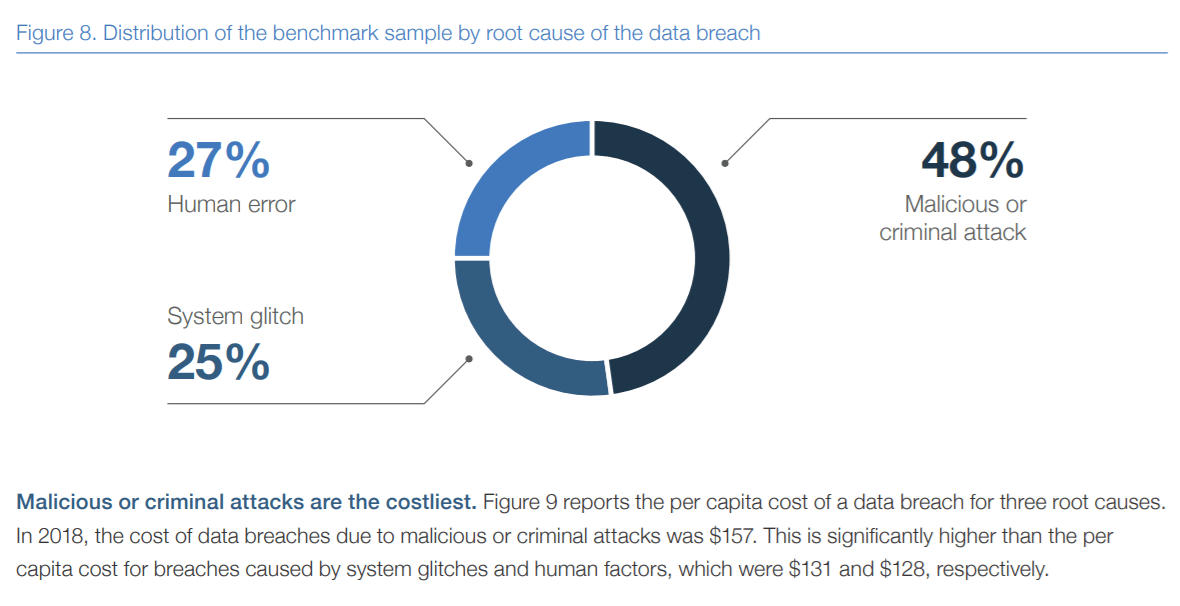Business
How to choose a SIEM provider to protect your business
It is a must now for businesses to protect their digital assets, hence, choosing the right SIEM provider is important.

For businesses, implementing cybersecurity practices to protect your digital assets is no longer an option.
According to the 2018 Cost of a Data Breach Study by the Ponemon Institute, the average annual cost of a data breach increased from $3.62 million to $3.86 million over the past year. On a smaller scale, stolen or lost records cost companies an average of $148 each.
Although human error and system glitches also play a role, nearly half of all data breaches are caused by intentional attacks.

Source: 2018 Cost of a Data Breach Study © Jimmy Rodela
If a breach leads to a customer data leak, it may also cost you the trust and loyalty of your patrons. This could have more lasting implications on your bottom line.
Fortunately, there are several ways businesses can protect themselves from the myriad of cyber threats on the web.
One of which is to purchase Security Intelligence & Event Management (SIEM), which pertains to the security technology that combines Security Event Management (SEM) and Security Information Management (SIM).
- SEM — The analysis of pertinent data from security events to help administrators manage threat monitoring, security policies, and incident response.
- SIM — The collection of security-related data from multiple sources such as logs from firewalls, antivirus software, and proxy servers.
Of course, not all SIEM service providers can provide the same level of reliability, service and cost-effectiveness. To help you decide the best SIEM solution for your business, here’s a checklist of things you need to look:
1. Advanced machine learning
The aspect of machine learning allows SIEM solutions to be scalable and reliable in the ever-changing landscape of cybersecurity.
If your managed SIEM platform features machine learning or AI modules, it should be capable of automatically detecting and adapting to behavioral changes in your system network. This will protect you from newer threats without the need for your direct involvement.
2. Seamless log management
Your SIEM should be able to consolidate reports from multiple security data sources to streamline your log management process. They must also have a user-friendly interface that makes it easy to retrieve and manage log data, unlike several SIEM tools in the market that have a steep learning curve.
3. Scalability
SIEM companies do a great job of offering packages that are tailored to an organization’s specific needs. But what if your business has growing cybersecurity needs?
To ensure long-term value, look for a SIEM provider that provides you with multiple scalability options to cover your ever-expanding IT footprint.
Some SIEM products, for example, support add-ons that can help you secure any vulnerability gaps your organization is concerned about, like DDoS mitigation, intrusion prevention systems. Also, consider the fees associated with upgrades and the possibility of integrations with third-party security services.
4. GDPR compliance
If your business collects and utilizes the information of EU-based customers, you should know that these data subjects are protected by the General Data Protection Regulation (GDPR).
A robust SIEM platform aligns with the requirements of the GDPR, including the proactive logging of secure events, complete documentation of data being processed, and an updated list of parties who may access and utilize customers’ personal data.
5. 24/7 support
Finally, a competent SIEM provider should be able to provide 24/7 support on top of an accessible library of learning resources.
When it comes to cybersecurity, every minute counts. A 24/7 support hotline will give you peace of mind that an incident response team is always within reach.
Conclusion
Purchasing a SIEM solution for your business is a big investment, which is why it is a decision you should make with absolute care.
You can use the list above as a baseline to determine whether or not a SIEM company is right for you. When in doubt, don’t hesitate to contact SIEM companies firsthand to gauge their professionalism and responsiveness to their clients’ concerns.
—
DISCLAIMER: This article expresses my own ideas and opinions. Any information I have shared are from sources that I believe to be reliable and accurate. I did not receive any financial compensation for writing this post, nor do I own any shares in any company I’ve mentioned. I encourage any reader to do their own diligent research first before making any investment decisions.

-

 Africa2 weeks ago
Africa2 weeks agoMASI Surge Exposes Market Blind Spot: The SAMIR Freeze and Hidden Risks
-

 Cannabis2 days ago
Cannabis2 days agoSnoop Dogg Searches for the Lost “Orange” Cannabis Strain After Launching Treats to Eat
-

 Crypto1 week ago
Crypto1 week agoIntesa Sanpaolo Signals Institutional Shift With Major Bitcoin ETF Investments
-

 Markets4 days ago
Markets4 days agoRice Market Slips as Global Price Pressure and Production Concerns Grow




![Kevin Harrington - 1.5 Minutes to a Lifetime of Wealth [OTC: RSTN]](https://born2invest.com/wp-content/uploads/2023/12/kevin-harrington-400x240.jpg)
![Kevin Harrington - 1.5 Minutes to a Lifetime of Wealth [OTC: RSTN]](https://born2invest.com/wp-content/uploads/2023/12/kevin-harrington-80x80.jpg)















You must be logged in to post a comment Login